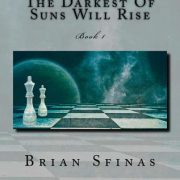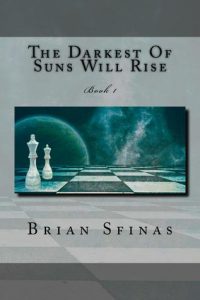Ultimately no one gets a happy ending. As every Game of Thrones fan knows, Valar Morghulis: All men must die. Even if you’re steadfast in your belief in an afterlife, you still have to die and the process is usually painful and scary.
The most we can hope for is a fortunate death. You rescue a child from a fiery building and get crushed by debris while the kid crawls to safety. At the age of 92, you and your beloved spouse die instantly in a car crash where no one else get hurts.
The inevitability of the unhappy ending may explain why so many readers of fiction crave happy ones. The storyteller brings the protagonist through conflict and danger to a moment of triumph or fulfillment—and then stops. The golden moment sails on forever. If it’s especially satisfying, the reader may reread the book and experience it all over again.
Some readers feel cheated when a story fails to deliver an upbeat ending or when it stops before the conflict is fully resolved (the open ending). “That’s all there is?” they ask. “What a downer!” A few might hurl the book across the room. Books have an advantage over e-readers here; they can be hurled without breaking.
Readers aren’t shy when they hate the ending of a book. They complain to friends and excoriate the offensive book in merciless reviews. Frustration and disappointment run deep, especially when there’s a large emotional investment in the story. Just read the reader reviews of Allegiant, in which Veronica Roth kills off the main character of her trilogy.
I understand why readers feel this way. It was hard for me to forgive JRR Martin for the Red Wedding. Never mind that Rob Stark brings his fate upon himself. His army dwindles as he alienates his allies from the other northern houses. Betrothed to one of Waldo Frey’s daughters for political reasons, he marries the woman he loves even though his advisors and his mother warn him not to. And his mother knows Waldo, knows his bitterness at being slighted by other houses. How can she even consider going anywhere near the old man? None of that matters. Martin makes me love these characters and then has them brutally slaughtered while they attend a wedding at Frey’s castle. My anger didn’t stop me from continuing the Fire and Ice saga but when I set out to reread it, I stopped in the middle of A Storm of Swords before coming to the Red Wedding. I just couldn’t go through that again.
I laughed when someone told me that the outcome of an “exotic massage” is called a happy ending. The analogy suggests the nature and depth of readers’ frustration. The author ramps up the tension with conflict and suspense and then delivers disappointment and frustration. True tragedy offers an elevated kind of release—catharsis—but melodrama depends on the happy ending.
Not every massage delivers sexual relief and not every kind of story ends well for the protagonist. Massage clients and readers know that. Their outrage comes when the benefit is promised and not delivered. Since the legality of a sex massage is iffy and readers don’t want to be told ahead of time how a story ends, the promise is implied. A suggestive sign outside the massage parlor, a book cover identifying the story as a romance.
It upsets me to see Daemon Seer categorized as a romance. I worry that somewhere a reader of romances loathed the ending and still blames me for her damaged Kindle.
So why not give deliver the happy ending every time? Because disaster is the logical end of certain stories, in which case the happy ending becomes a clumsy lie. Intelligent readers reject the lie—even when part of them yearns to accept it. And a few writers are hard cases who insist on delivering a truth that few people care to acknowledge. A truth stated beautifully by Anne Sexton in her poem “Cinderella”:
Cinderella and the prince
Lived, they say, happily ever after,
Like two dolls in a museum case
Never bothered by diapers or dust,
Never arguing over the timing of an egg,
Never telling the same story twice,
Never getting a middle-aged spread,
Their darling smiles pasted on for eternity.
Image credits:
Cinderella still from FanPop
Game of Thrones still from FanPop
JRR Martin meme by AryaArryWeaselNanSaltyCatofthecanalsBethNoOne via Mashable
Massage parlor sign from Bakersfield Now





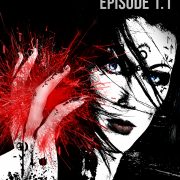
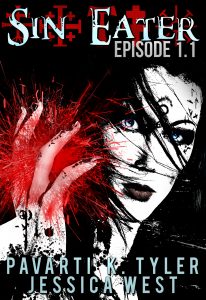

 His vocabulary included such staples as “Benji is a pretty bird” and “Hey baby, you’re cute.” He might have learned more if I’d had the patience to teach him. But I would have loved him whether he talked or not. Gentle and affectionate, he liked perching on my shoulder and nibbling my ear as I read or watched TV. He soon began joining me at meals where — to Joe’s disgust — he perched on the rim of my plate and nibbled my food. He especially liked spaghetti in tomato sauce.
His vocabulary included such staples as “Benji is a pretty bird” and “Hey baby, you’re cute.” He might have learned more if I’d had the patience to teach him. But I would have loved him whether he talked or not. Gentle and affectionate, he liked perching on my shoulder and nibbling my ear as I read or watched TV. He soon began joining me at meals where — to Joe’s disgust — he perched on the rim of my plate and nibbled my food. He especially liked spaghetti in tomato sauce.


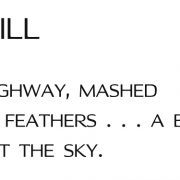



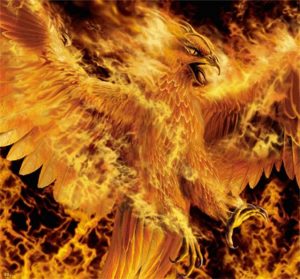
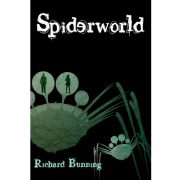

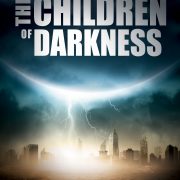



 The urge to write first struck when working on a newsletter at a youth encampment in the woods of northern Maine. It may have been the night when lightning flashed at sunset followed by northern lights rippling after dark. Or maybe it was the newsletter’s editor, a girl with eyes the color of the ocean. But he was inspired to write about the blurry line between reality and the fantastic.
The urge to write first struck when working on a newsletter at a youth encampment in the woods of northern Maine. It may have been the night when lightning flashed at sunset followed by northern lights rippling after dark. Or maybe it was the newsletter’s editor, a girl with eyes the color of the ocean. But he was inspired to write about the blurry line between reality and the fantastic. Get Your Copy Now!
Get Your Copy Now!
